Content
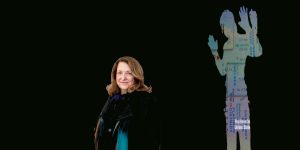
Key Note: Lynn Hershman Leeson
Lynn Hershman Leeson (US)
For over fifty years, Hershman Leeson’s practice mines the intersections of technology and the self. She is known for her groundbreaking contributions to media art from Artificial Intelligence to DNA programming, often anticipating the impact of technological developments in society.
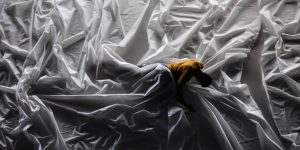
DARV_ Abandoned Land
Lee Jung In (KR/AT) Mihaela Kavdanska (BG/RO/AT) Violeta Ivanova (BG/AT) Florian Weinrich (AT)
DARV_ Abandoned Land is an intermedia dance performance which sprouts connections between analog and digital. The performers interact with large-scale objects and video projections, resembling the endless migration from one world to another in search for the better. The DARV team and eight dancers perform in various locations in Austria, South Korea and Bulgaria, guiding the audience through dystopian realities and abandoned sites. Drained-off utopias, failed social mechanisms and ideologies are embodied, explored and ultimately abandoned.
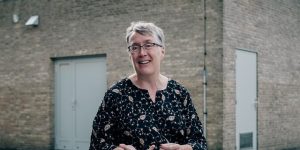
Key Note: Joanna Bryson
Joanna Bryson
Joanna Bryson is Prof. of Ethics and Technology at the Hertie School. Her research focuses on the impact of technology on human cooperation, and AI/ICT governance. From 2002-2019 she was on the Computer Science faculty at the University of Bath. She has also been affiliated with the Dpt. of Psychology at Harvard University, the Dpt. of Anthropology at the University of Oxford, the School of Social Sciences at the University of Mannheim, and the Princeton Center for Information Technology Policy
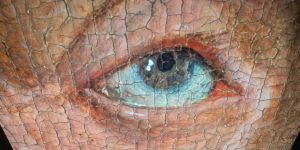
Jan van Eyck was here, there and is now everywhere …
Till-Holger Borchert (DE)
On the occasion of the Van Eyck Year 2020, Ars Electronica, in cooperation with the General Delegation of Flanders, Musea Brugge and with the kind support of the Belgian Royal Institute for Cultural Heritage (KIK-IRPA) and Art in Flanders; high-resolution images will be shown of Jan van Eyck's most famous masterpiece, the Ghent Altarpiece, as well as other images made by KIK-IRPA for the VERONA Project (Van Eyck Research in OpeN Access).
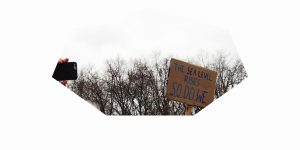
Creative Question Challenge: Radical change by working together
Kat Austen (UK/DE), Indrė Žliobaitė (FI), Laurence Gill (IE), Andrew Newman (AT/AU)
'Let us finish what we started'. This is how the UN introduces its first Sustainable Development Goal - to end poverty in all forms and dimensions by 2030. The 17 Sustainable Development Goals and their 169 targets have been described as a sprawling, misconceived mess of grandiose intentions. The title of the development agenda itself - 'Transforming our World' - oozes utopian ambition. It was adopted by 193 nations in 2015. Five years later and with ten years left, how do you think our world will transform?
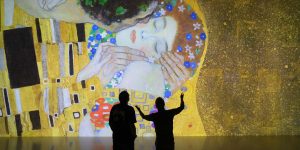
Gustav Klimt's "Kiss" as Gigapixel - On the Cooperation between Google Arts & Culture and the Belvedere in Vienna
Belvedere, Franz Smola (AT)
At the presentation initiated by ARS Electronica, experts from Google Arts & Culture will explain the technology of the Art Camera and its application in cooperation with museums worldwide in a vivid way. Belvedere curator Franz Smola, responsible for the scientific expertise and supervision of the project, will also explain the art historical aspects of Klimt's painting "The Kiss".
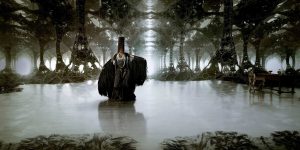
2020 - Finally Digital?!
Christina Steinbrecher-Pfandt (US), Renger van Den Heuvel (NL), Sabine Himmelsbach (DE/CH), Nanne Dekking (US/DE), Alain Servais (BE), Paul Frey (AT), Alfred Weidinger (AT), Casey Reas (US), Kate Hollenbach (US), JiaJia Fei (US), Raina Mehler (US), Magda Sawon (US), Sharon De Mattia (US) and Thomas Kohler (DE)
2020 started with a bang that made the art industry pivot away from its established codes of conduct almost overnight for sheer survival. From the exchange of courtesies to remote work structures, old customs required immediate redesign in response to the crisis. As a result, the online space gained even more significance as the only platform for business and commercial transactions, affecting even the art industry and its age-old reliance on in-person interaction.
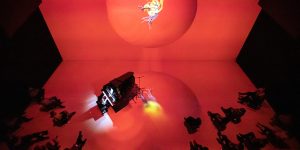
Pianographique
Maki Namekawa (JP/AT), Cori O'Lan (AT)
Philip Glass' piano solo piece Passacaglia: After a tranquil opening, we break into boiling and purely pianistic passages of arpeggios and scales. Philip Glass' trusted pianist Maki Namekawa (who has premiered several of his piano pieces) performs this work in its Austrian premiere.

Breaking up the gameplay – a talk about feminism and experiencing the abolished private
Rebecca Merlic (HR)
Artist Talk about the feminist aspects of The City as a House, an interactive visual novel, an experiment of a white European 30-year-old heterosexual human, living in Tokyo without inhabiting a private apartment over a period of time.
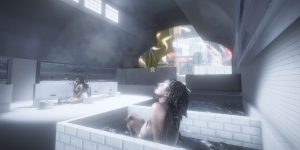
The City as a House – A speculative exploration of the possibilities of abolishing known forms of habitation
Rebecca Merlic (HR)
Vast amounts of pictures, sounds, videos and 3D scans are organized as environments in Rebecca Merlic’s The City as a House, in form of an interactive visual novel. A work about the experiment of a white European 30-year-old heterosexual human living in Tokyo without inhabiting a private apartment over a period of time. A speculative exploration of the possibilities of abolishing known forms of habitation.
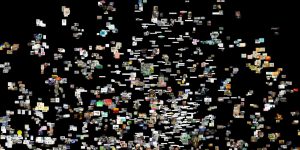
Networked Archives
Oliver Grau (DE), Dagmar Schink (AT), Christiane Paul (DE/US), Mariano Sardón (AR), Rafael Lozano-Hemmer (MX/CA), Manuela Naveau (AT)
Panel - In a world in which we increasingly rely on online content, media art archives and platforms are no exception. The Networked Archives panel addresses their role in making media art accessible online, and highlights various approaches to the field. As archives and metadata are central issues and the base for the digital content sector they are evolving into important online value chains. How can archives be monetized, contribute to the developments in the media art markets and form base for online platforms?
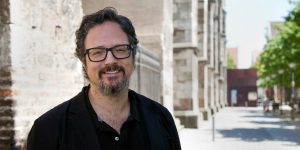
Best Practices for the Conservation of Media Art from an Artist's Perspective
Rafael Lozano-Hemmer (MX/CA)
Talk - For the past five years, media artist Rafael Lozano-Hemmer has been developing a system of procedures to help his studio deal with the maintenance of hundreds of computerized artworks that are in collections around the world. In this talk, Rafael will go over the main methods to accomplish this, in the hope that other artists will adopt them and create realistic expectations for potential collectors.
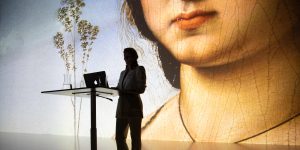
Magister Raffaello 2020
Magister Art (IT)
Conceived to celebrate the 500th death anniversary of the renaissance artist Raphael, Magister Raffaello is a new cultural project by Magister Art, digital innovators in cultural heritage content creation, production and promotion. It combines the high scientific value with the constant experimentation of new languages and media, to create an ‘augmented narration’ and a ‘total’ cognitive experience. Magister Raffaello is shown in collaboration with the Italian Cultural Institute in Vienna.
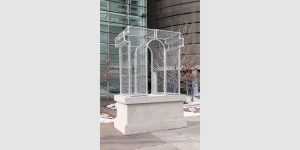
If once we ever were by Jaime Carrejo (USA)
Black Cube Nomadic Museum (USA)
Black Cube Nomadic Museums’ executive director and chief curator Cortney Lane Stell presents If once we ever were, a virtual recreation of a public sculpture and temporary monument by artist Jaime Carrejo that recognizes immigrants and their contributions to our communities. The monument is a triumphal arch composed of chain-link fencing that originally appeared in Denver, Colorado and acts as a metaphor for boundaries—the delineation of private and public space, the division of geographical borders, and the separation of rights.
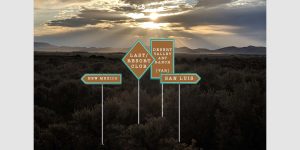
Augmented Idolatry (AI) - inaugural project of the Desert Valley Art Ranch (VAR), San Luis Valley, Colorado
LAST/RESORT Club
Augmented Idolatry (AI) is a collective AR artwork composed of seven distinct AR idols, designed in direct response to the landscape, history and spirituality of the San Luis Valley, home to the artist residency “Desert Valley Art Ranch.” An actual mud plinth built on-site is shared among the seven AR idols and connects them to the land. The AR idols refer to memento mori, indigenous histories, natural resources and sacred geometries.
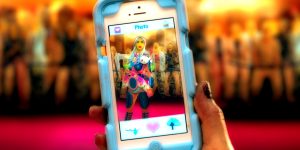
Business Models for Online Contents
Brendon Ciecko (US), Ulvi Kasimov (UK) and Aleksandra Artamonovskaja (CZ/UK), Sabine Seymour (AT) Moderators: Nathalie Pichard (CH), Thierry Baujard (FR)
The panel Business Models for Online Contents will investigate various entrepreneurial endeavors of platform-based access to online content, and how they are monetized. Crowdfunding, licenses or subscription models are only a few of the strategies institutions have to generate revenues in cultural & creative industries, and to secure revenue for artists and content developers.
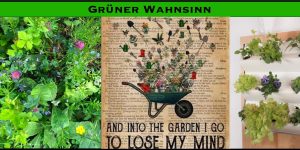
Green Nonsense
Green Nonsense is a creative food laboratory where knowledge transfer is of central importance. The aim is to spread awareness of wild medicinal herbs, which grow in the wilderness and are used in traditional European medicine, as "food and experience design".
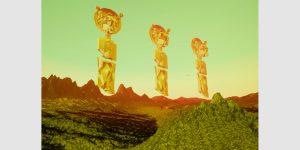
Rio Verde
Cherish Marquez (US)
Rio Verde is a socially conscious video game by Cherish Marquez that explores the healing powers of the desert, as well as themes such as Latinx iconography and mental wellness.
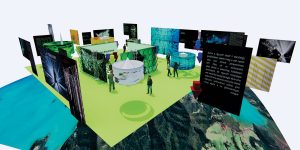
Get.Inspired
Alejandro Martin (ES), Bjorn Lustic (US), Holger Volland (GE), Jens Heithecker (GE), Patrick Tomelitsch (AT), Becky Lees (UK), Cyberballet (DE), Mikael Fock (DK), Sabine Seymour (AT)
This year’s Get Inspired session seeks to cover a vast array of interesting, diverse practices and approaches with a focus on digital and virtual projects, virtual events, platforms and contents. The panel will present examples from events, fairs, tourism, performance venues and museums.
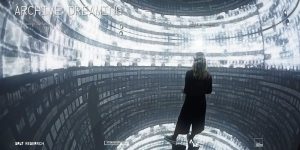
Synesthetic Architecture
Refik Anadol (TR), Kenric McDowell (US)
In Synesthetic Architecture, Refik Anadol (TR/US) and Kenric McDowell (US) take viewers on a journey into artistic and creative practice at the intersection of artificial intelligence, architecture and spatial design. They discuss both Refik’s personal experience of diving into deep learning technologies as a means of artistic expression and the development of this hybrid field over the past years.


